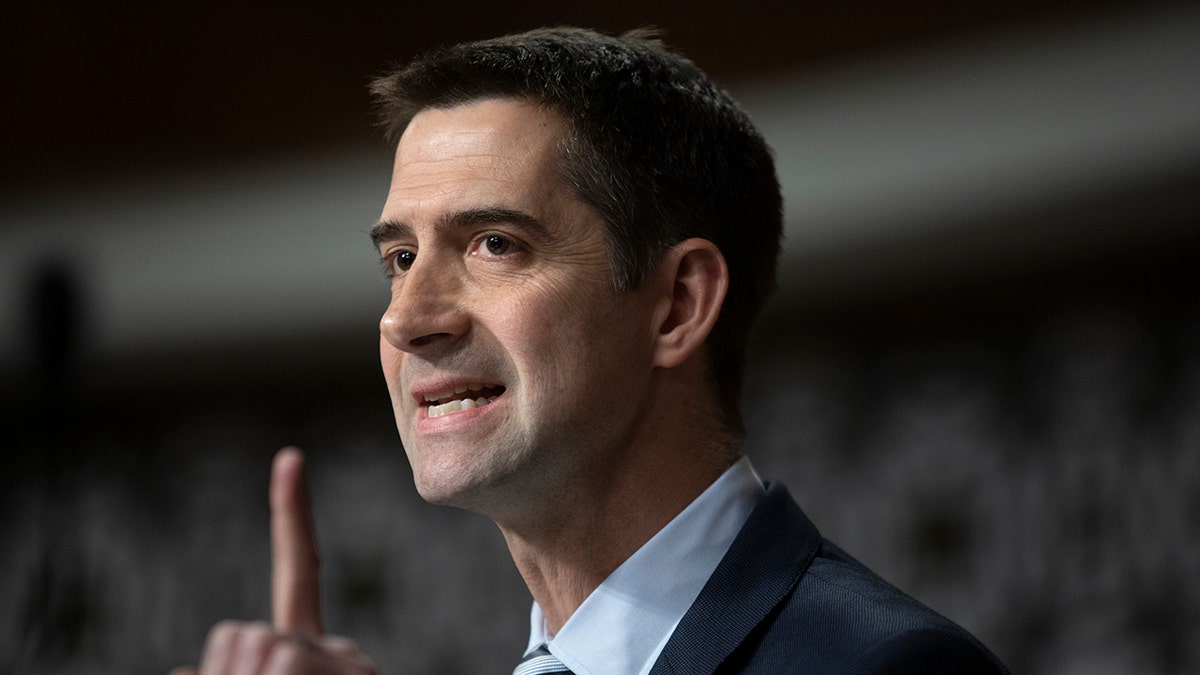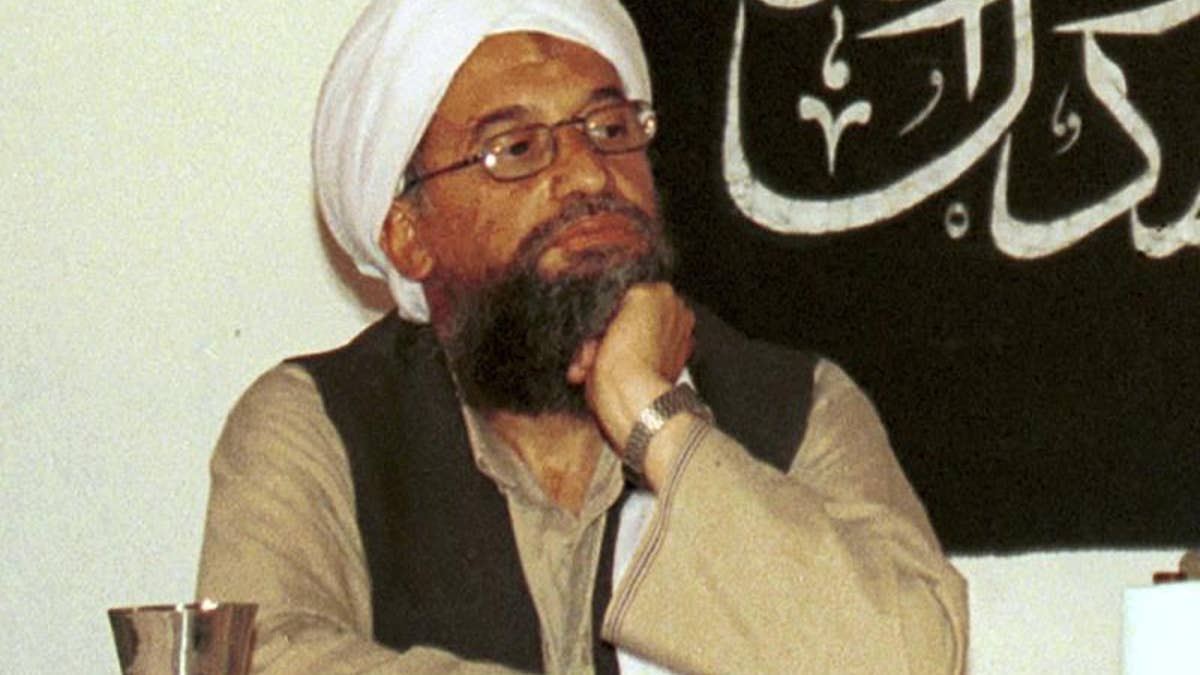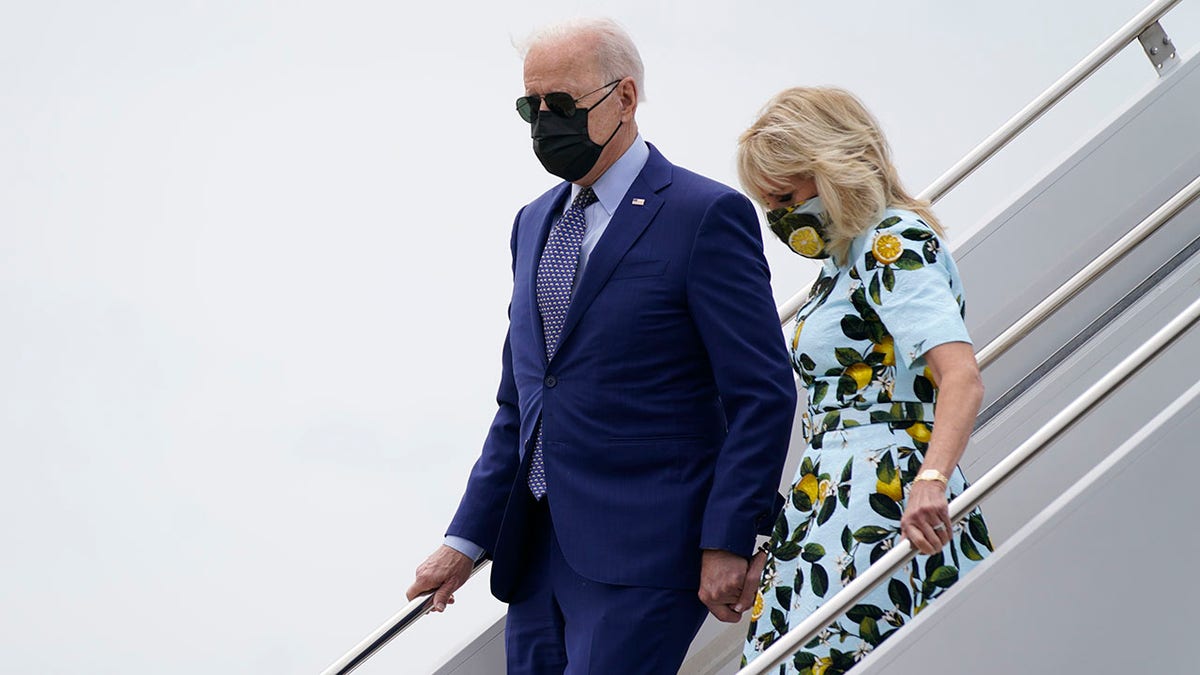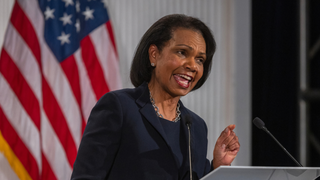Al-Qaeda leader Ayman al-Zawahiri is killed in US operation
Fox News Host of ‘Special Report’ Bret Baier discusses the latest news concerning the death of terrorist group al-Qaeda leader Ayman al-Zawahiri on ‘The Five.’
Sen. Tom Cotton, R- Ark., took a jab at the New York Times on Tuesday over the killing of al Qaeda leader Ayman al-Zawahri and its connection to Taliban leader Sirajuddin Haqqani, author of an infamous 2020 Times op-ed.
Haqqani wrote an op-ed for the New York Times headlined, "What We, The Taliban, Want." The newspaper drew criticism for platforming Haqqani, only identifying him from his Taliban leadership position and not mentioning the violent Haqqani Network, a U.S.-designated terrorist organization.
Cotton set off an uproar at the Times that same year with his op-ed about possible U.S. military force to assist local enforcement in quelling civil unrest at the time, and he couldn't resist needling the paper.
"The @nytimes really needs to improve its process for accepting op-eds. I know there’s some hard feelings on their part, but I’ll promise not to harbor al Qaeda leaders if they want to publish me again," he wrote on Twitter.
The outlet was accused of stealth-editing their piece on the al Qaeda leader's killing, which first said, "according to one American analyst, the house that was struck was owned by a top aide to Sirajuddin Haqqani, a senior official in the Taliban government whom American officials say is close to senior Qaeda figures."

Sen. Tom Cotton addresses Christine Wormuth, secretary of the Army, during a Senate Armed Services Committee hearing at the U.S. Capitol on May 5, 2022. (Tom Brenner/Getty Images)
The Times later changed it, although a spokesman told Fox News Digital it was a standard part of the web-editing process and didn't necessitate a correction.
"After the strike, members of the Haqqani network, a terrorist group that is part of the Taliban government, tried to conceal that Mr. Zawahiri had been at the house and restrict access to the site, according to a senior administration official. But the official said the United States had multiple intelligence threads confirming that Mr. Zawahiri was killed in the strike," the new paragraph said.
While the Haqqani op-ed drew some criticism internally at the New York Times, Cotton's op-ed in 2020 led to a staff revolt, with dozens sending the same message on social media that the piece had put Black Times employees in danger. Editorial page editor James Bennet resigned in the backlash, and the bizarre episode further damaged the paper's credibility in the eyes of conservatives.

Recently slain al Qaeda leader Ayman al-Zawahri speaks on the 11th anniversary of Usama bin Laden's death. (AP Photo/Mazhar Ali Khan, File)
WHO IS AYMAN AL-ZAWAHRI: AL QAEDA LEADER KILLED IN AFGHANISTAN
Haqqani's op-ed for the Times was published in February 2020, when Trump administration officials were in talks with Taliban leaders about possibly withdrawing troops from Afghanistan. He wrote that an agreement would allow for Afghans to appreciate "our shared home where everybody would have the right to live with dignity, in peace."
He also claimed that the Taliban was "committed to working with other parties in a consultative manner of genuine respect to agree on a new, inclusive political system in which the voice of every Afghan is reflected and where no Afghan feels excluded." The Taliban seized control of the country in the wake of the U.S. troop withdrawal a year ago and has again ruled with an iron fist.

President Biden and first lady Jill Biden arrive at Lawson Army Airfield in Fort Benning, Ga., during a trip to mark his 100th day in office on April 29, 2021. (AP Photo/Evan Vucci)
CLICK HERE TO GET THE FOX NEWS APP
President Biden on Monday announced that the U.S. killed the al Qaeda leader in a successful counterterrorism mission over the weekend in Kabul. Al-Zawahri served as Usama bin Laden's deputy during the 9/11 attacks and succeeded him in 2011 as the al Qaeda leader after bin Laden's death.










































